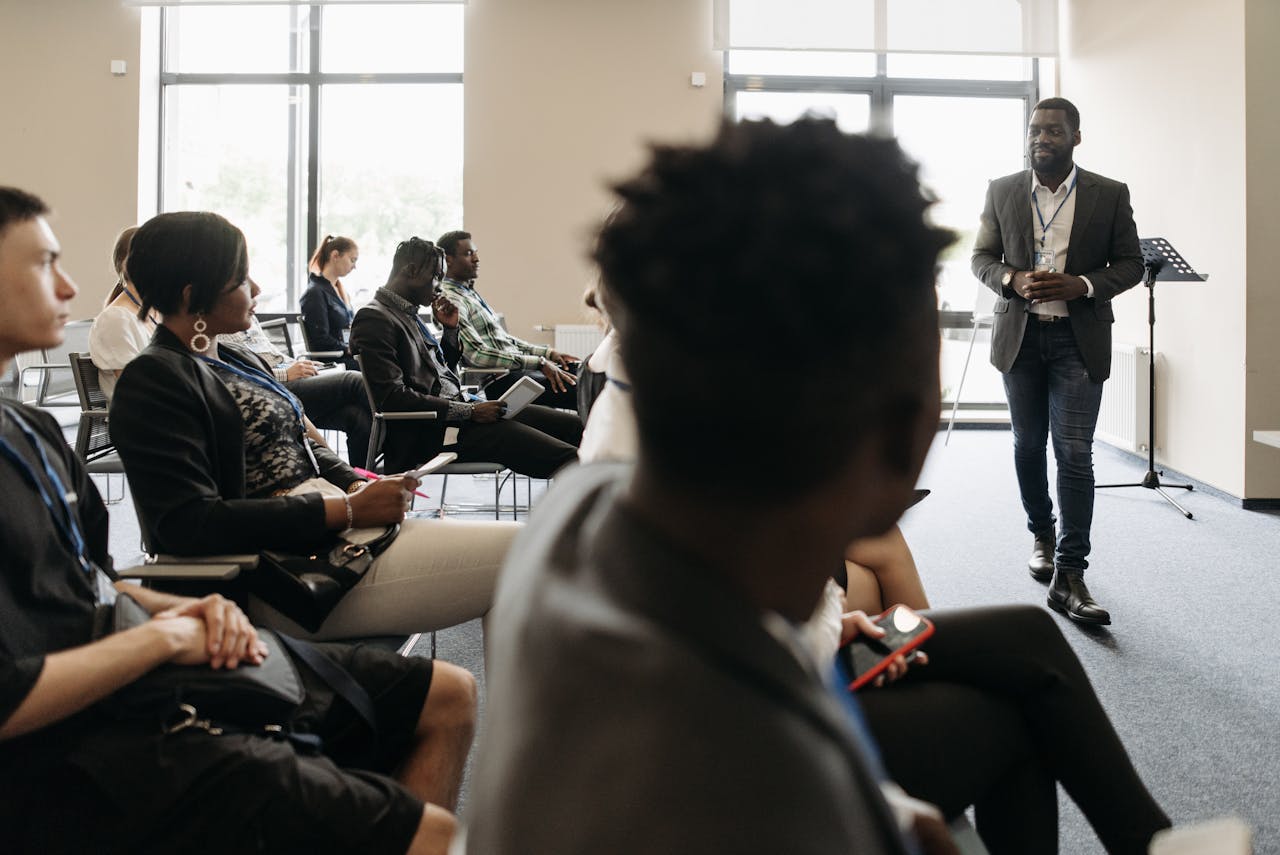Want to make your speech more powerful through body language? From maintaining eye contact to using gestures and movement effectively, this article can teach you how to project confidence and engage your audience with every move. Learn how to use non-verbal communication to enhance your message and create a lasting impact.

Maintaining Eye Contact to Build Trust and Engagement
One of the simplest yet most powerful tools you have is your eyes. When you maintain eye contact with your audience, you show them you are sincere and engaged. This connection can make people feel involved in what you are saying. Try to look at different sections of the audience rather than just focusing on one spot. This keeps your speech dynamic and helps build a bond of trust with your listeners.
Using Hand Gestures to Emphasize Key Points
Your hands can be an extension of your voice. Natural hand gestures can help emphasize your key points and make your speech more interesting. Instead of keeping your hands stiff at your sides, let them move in a way that reflects your message. If you’re discussing something small, use a pinch gesture; if you’re talking about something large, spread your arms wide. Just remember that too many gestures can be distracting, so find a balance that feels comfortable for you.
Adopting an Open Posture to Project Confidence
How you hold your body can influence how people perceive you. An open posture—standing or sitting with your shoulders back and arms uncrossed—signals confidence and approachability. This openness invites your audience in and makes them feel welcome to listen. Conversely, a closed posture might suggest nervousness or defensiveness, distancing you and your audience.
Facial Expressions to Convey Emotion and Enthusiasm
Your face is a powerful communication tool. Your expressions can convey emotions that words alone might not express. A smile can make you appear friendly and approachable, while a frown might indicate frustration or seriousness. Adjust your facial expressions to match the mood of your speech. If you’re excited about your topic, let your face reflect that enthusiasm—it can be contagious!
Movement on Stage to Keep the Audience Visually Engaged
Physical movement during your speech can capture and retain the audience’s attention. Rather than being glued to one spot, feel free to walk around the stage, but do so purposefully. Moving closer to the audience can create a sense of intimacy while stepping back can help emphasize a more general point. Just remember not to pace back and forth nervously; movements should enhance your message, not distract from it.
Mirroring the Audience’s Reactions to Create Connection
People naturally connect with those who seem similar to them. You can create a sense of empathy and understanding by slightly mirroring the audience’s body language—such as nodding when they nod or matching their energy. This doesn’t mean you should mimic everyone, but subtle mirroring can strengthen the connection and engagement during your speech.
Avoiding Distracting Movements That Could Break Focus
Not all movements are helpful. Avoid fidgeting with your hair, adjusting your clothes excessively, or playing with objects in your pockets. These behaviors can distract your audience from your message. Instead, keep your movements purposeful and aligned with what you are discussing. A steady demeanor can command attention and convey confidence.
Leaning Slightly Forward to Show Interest and Involvement
Leaning slightly forward when speaking can show your audience you are engaged and enthusiastic about the topic. This small shift can signal to them that what you say is important. It can also encourage them to lean in, creating a more interactive atmosphere. Just be cautious not to lean too far forward, which could misinterpret your intention as aggression.
Body language can make or break a speech—it’s crazy how much it influences how your message comes across. When you use gestures, maintain eye contact, or even just stand with confidence, it makes what you’re saying so much more engaging and believable. It’s like your body reinforces your words, helping you connect better with your audience. That’s why getting public speaking coaches near me is super helpful; they can point out those little things you might not even realize you’re doing and help you adjust. And combining that with communication skills classes near me, you’ll not only become more aware of your body language but also learn how to use it effectively, making your speeches way more impactful.




